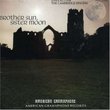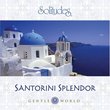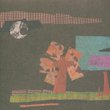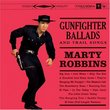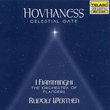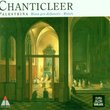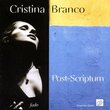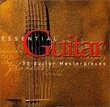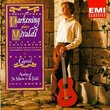| All Artists: Stephen Montague, John Lubbock, St. John's Orchestra Smith Square, Christopher Bowers-Broadbent Title: Montague: Snakebite/At The White Edge Of Phrygia/Varshavian Autumn/Behold A Pale Horse Members Wishing: 1 Total Copies: 0 Label: Asv Living Era Release Date: 3/18/1997 Genres: Special Interest, Classical Styles: Chamber Music, Symphonies Number of Discs: 1 SwapaCD Credits: 1 UPC: 743625099126 |
Search - Stephen Montague, John Lubbock, St. John's Orchestra Smith Square :: Montague: Snakebite/At The White Edge Of Phrygia/Varshavian Autumn/Behold A Pale Horse
CD DetailsSimilarly Requested CDs
|
CD ReviewsThe acceptable face of contemporary music Steve Benner | Lancaster, UK | 02/24/2002 (4 out of 5 stars) "Whether it be works for tape, tape and instrument, instrument and electronics or instruments alone, the music of American born composer Stephen Montague is never anything other than highly listenable. In many ways, this man redefines the term ?accessible?, whilst at the same time maintaining a high level of musical intensity, having written some of the most expressive works of modern music that you're likely to find. Whilst remaining adventurous, there is certainly nothing on this particular release to frighten even the most conservative music lover. Indeed, much of what is here ought to delight most who hear it (whether conservative in their taste or not!) The disc contains four medium-scale works for chamber forces, all taking their inspiration from other musical works or styles, yet maintaining something distinctly original. The first, "Snakebite", for chamber orchestra, dates from 1995. It was inspired by memories of time spent in Austin, Texas and begins as an engaging yet complex work for the concert hall based on the traditional Texas fiddle tune, "Dusty Miller". The work?s title refers to a story that the composer was told by an old cowboy about the way that Plains Indians dealt with rattlesnake bites: by immediately lying down, closing their eyes, and willing their heartbeat to slow ? and then staying like that for 18 hours until the poison had dispersed! This story element is worked into the piece through the introduction of a ?poison tune?, in a different key to the rodeo tune, which gradually 'infects' each player in turn, slowing their playing until eventually poor Dusty is put entirely on hold, replaced by an alien, lyrical element. After a time, though, the 'poison' is gradually dispersed, and the rodeo tune bounces back, as healthy as ever.
"At the White Edge of Phrygia" which follows, is the earliest work on this disc, dating from 1983. Also scored for chamber orchestra, it is written as a deliberate imitation of the music of American minimalist composers such as LaMonte Young, Terry Riley, Steve Reich and Philip Glass, but combined with the European symphonic tradition. The work opens with quiet rhythmic tappings on untuned percussion and strings, from which the fragments of a tune slowly emerge. Gradually, the rest of the orchestra picks up the basic rhythmic and contrapuntal motives, creating some delightful instrumental textures over some 8 minutes or so, throughout which the tension builds by degrees to culminate in a massive brass and percussion climax. From here, the music descends into a moodier phase, in the quiet and contemplative depths, from which the re-emergence of the main theme slowly draws it back, finally erupting from its dark broodings to an exuberant conclusion. "Varshavian Autumn" is a 1996 reworking of an earlier work by Stephen Montague, scored for chamber orchestra and choir. The work was inspired by the composer's first arrival in Warsaw on Halloween, 1972, his first impressions of that city being dominated by the sight of thousands of candles flickering throughout the city's cemeteries, beneath a leaden autumnal sky. This work is, not surprisingly therefore, funereally slow, with a wordless chorus providing the main focus throughout an entirely sombre ? but powerfully atmospheric ? affair. The final work on the disc, "Behold a Pale Horse" (1990/5), is part of a series of ?toccatas? for various instruments: in this case, organ, accompanied by a brass ensemble, comprising two trumpets, two horns, two trombones and tuba. The work was commissioned by organist Christopher Bowers-Broadbent, the soloist on this recording. The 11-minute work draws its inspiration from the description of the last of the Four Horsemen of the Apocalypse in the vision of St. John (in Revelation 6: 7-8). It takes as its basis, melodic material drawn from Thomas Celano?s 13th Century dies irae sequence for the Mass for the Dead, together with the so-called Devil?s Interval (the tritone, F-B on the keyboard). Its powerful and imposing grandeur brings proceedings here to a suitably Apocalyptic close.The Orchestra of St. John's, Smith Square, conducted by John Lubbock, are to be congratulated on quite faultless renditions of the works on this disc, which is highly recommended for anyone interested in the more accessible face of contemporary serious music." |

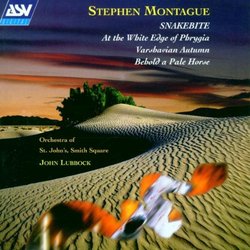
 Track Listings (4) - Disc #1
Track Listings (4) - Disc #1